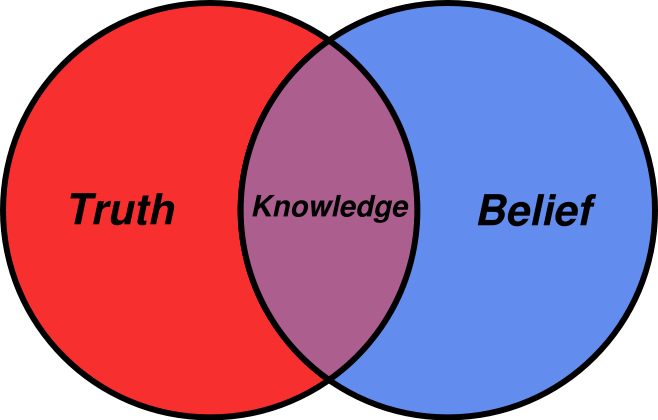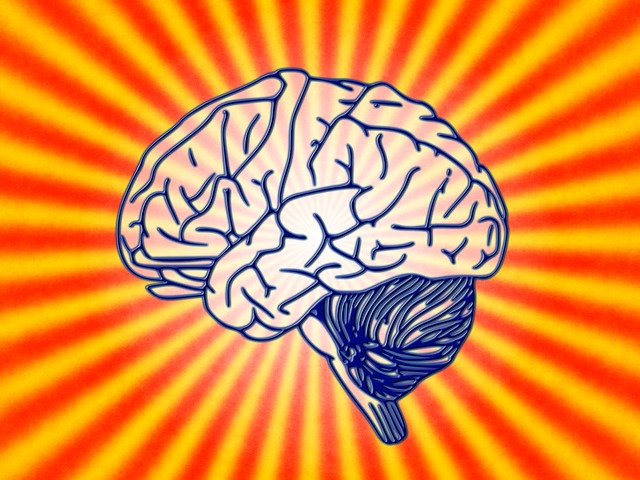“There Is No Truth, There Is Only Perception” – Gustave Flaubert
I’ve recently learned an amazing trick that has allowed me to improve myself in all areas of my life and has gradually improved my life to an extent that is simply unimaginable. (And no, it wasn’t my morning ritual)
Reprogramming my brain
This stuff isn’t black magic and can pretty much be performed by anyone who’s willing to try it out. (although it is a pseudo-science, it has worked for me)
If you’re able to commit to the steps I described in this post you’ll be able to change how you see yourself and how you perceive the world. These two factors can make or break your possibilities and opportunities in life.
Why not try it eh..?
——————————————————
What Are Beliefs?
Beliefs are basically your thinking patterns that have build up over the years to form a mental image of what you think is “the truth”. They define who we think we are, how we perceive the world and eventually everything we think we’re capable off.

False Beliefs Hold Us Back In Life
The problem with beliefs is that we don’t always (read: never) believe in the actual truth but simply our perception of the truth, based on the knowledge we’ve gathered in our lifetime.
This can become dangerous if we choose to believe in the wrong stuff!
Like.. really dangerous..
Why Should I Change My Beliefs?
Often in life we’re stuck with conditioned beliefs (auto-suggestion) by society that have dictated to us who we are and what we’re capable of. By allowing other people to do so, we’re basically limiting our possibilities and chances for success. (among many other)
- If people tell you that you’re not smart, guess what you’re going to believe about yourself? –> That you’re dumb
- If you failed at public speaking for the first time in your life, guess what you’re going to believe about yourself? –> That you suck at public speaking
- If you had an awkward night out with weird interactions with women, guess what you’re going to believe? –> That you’re creepy and unattractive
- …
The list is endless
Anyway, do you see the trend?
We base the perception of ourselves and our surroundings on the knowledge we’ve gathered over the years oblivious to the fact that these beliefs might simply be lies we tell our-self.
We form false conclusions based on the gathered knowledge
Why is this a problem?
Our perception of who we are and of our world is literally what shapes our life. Our beliefs become self-fulfilling prophecies.
So here’s the major problem I’ve seen in myself and pretty much every other human being on this entire planet;
We choose to believe bullshit
(and you probably do this too!)
- We CHOOSE for truths that actively destroy our possibilities in life
- We CHOOSE for realities that limit our opportunities
- We CHOOSE to live in a world in which we are the victim
Fuck that noise… seriously
Like I said in my post titled “The STFU-Manifesto“:
Disempowering beliefs get you no-where in life
So why indulge in them?
How Do I Change My Beliefs?
Enter Brain 2.0…
The first step to changing your beliefs is to clearly realize that these beliefs will take everything away from you that you want out of life.
- Love
- Opportunity
- Passion
- Health
- Happiness
- …
To make this more real for you, you can start by writing down your limiting beliefs and describe in detail how they have destroyed your life in the past and how they will continue to ruin it in the future.
So…
“Yeah Yeah, all fun and games but how do we change these things Simon?”
GREAT question! Let me get to that;
Beliefs are determined and changed by three key pillars;
- Our Perception (What we see as “truth”)
- Our References (The so-called “proof” we use to back our “truth” up)
- Time (Transition time between two beliefs)
Step 1: Changing Your Perception
For reprogramming your mind, you  should start with your perception. This is basically what you believe to be true; the perception of yourself and the world around you.
should start with your perception. This is basically what you believe to be true; the perception of yourself and the world around you.
Often these perceptions have been given to us by our surroundings when we were younger like I said before. Actually, most of the things we believe up until this day are provided by our surroundings.
- Your mom that says you’re naturally gifted at singing
- Your teachers at school that say the world is difficult and cruel
- …
This process is called auto-suggestion (or at least, that’s what I call it ;)). These beliefs are “automatically” provided by the media, friends, society and whatnot. It’s the”default” mode in our brain.
But the problem is that most people stay stuck with these false truths for the rest of their life, not knowingly they can change them.
“Booooring, gimme something practical man…”
The way we change our beliefs is by overriding what we currently believe trough self-suggestion (meaning you create the perception you want to have about yourself and about your life)
This is the most important step you’ll need to take if you want to reprogram your brain.
Step 2: Building Up References
The problem is that you’ll now have two, conflicting beliefs about yourself and the belief with the most references (aka the one that feels the most “true”) is the one that will take over.
Our brain will resist our new, empowering belief until we’ve actually build up enough references to back it up in the first place. This resistance is called “Cognitive dissonance“.
Our mind will enter a state of mental in-equilibrium (mental stress) in which it tries to reduce the contrast between the conflicting beliefs.
“Dissonance is felt when people are confronted with information that is inconsistent with their beliefs. If the dissonance is not reduced by changing one’s belief, the dissonance can result in restoring consonance through perception, rejection or refutation of the information, seeking support from others who share the beliefs, and attempting to persuade others”
Basically our mind will try to disprove our new belief continuously.
Assuming an empowering identity/reality will be hard to “believe” in the beginning until you’ve build up enough references to actually back your identity/world up. But you just need to persist in living according to what you want to believe in order to create the references to actually back that belief up.
Makes sense?
**For Example:
**
- You won’t believe you’re good with women until you’ve successfully approached one (or several ones). But you won’t successfully approach them if you don’t believe you can.
- You won’t believe you’re good at studying math until you’ve actual done a great test in math. But you won’t do a great test unless you’re actually convinced you’re good at studying math which will result in you putting more effort in the learning
- …
See the contradiction?
A: Yes, this is a mind-fuck in the beginning.
A great way to build up references with your new beliefs is by vividly visualizing them in action. I’ve recently read a great book titled “Psycho-Cybernetics” by Maxwell Maltz which states that;
“The human nervous system cannot tell the difference between an actual experience and one imagined vividly and in detail.”
So by practicing the beliefs we want in our mind, we’re able to build up experiences (read: references) BEFORE we actually go out and apply them. This is HUGE.
(that’s what she said)
If you want to believe you are more confident, smart, attractive, whatever. Simply vividly imagine yourself acting and being EXACTLY how you would want to be in each situation.
In psychology, this type of treatment is called implosive theraphy.
Keep persisting until your new, empowering belief becomes your standard thought-pattern.
Step 3: Time
Anywhere from 18 to 254 days – 66 on average
Basically, fake it until you build up enough references to start believing in it.
Time, therefore is the last factor for changing beliefs. It is the gradual change agent between two conflicting beliefs.
So persisting is key here.
Over time, our new empowering belief will take the place of our old, disempowering belief. This is the same way as you build new habits. When we continuously use willpower to reach a desired action, it will become habitual over time.
In the same way, we can build up a habitual personality. Our new, empowering beliefs will therefore become “auto-suggested” and we wont have to deal anymore with the cognitive dissonance.
Congratulations! You’ve just re-programmed your mind.
Essence
Alright so, I hope I’ve been able to clearly show you guys how our thought patterns shape our life and therefore the necessity of creating empowering beliefs.
If you don’t believe all this new-age, pseudo-scientific stuff, just say to yourself:
Why not try it? What do I have to lose?
I agree it is a bit far “out-there”/hippie-ish. I was skeptical at first too. But it is what it is and I contribute the massive changes I’ve recently made in my life to exactly this process. So by sharing this I’ll hope it’ll work for you too.
I’ve mainly used this technique to change how I see myself. This by writing down EVERYTHING I want to believe about myself and re-conditioning it by reading and visualizing how I want to be.
I even got audio tapes now which I play every morning and evening which tell me how great I am.
Quick Re-cap:
- Perception.
- Become aware of your self-talk and recognize the auto-suggested belief is a limiting perception
- Recognize the pain it causes in your life.
- Self-suggest a new perception whilst discounting/logically disproving your old perceptions (maybe even write these down!). I keep a list of negative beliefs I have and their counter-arguments.
- Build Up References
- Visualize vividly and in detail how this new belief will take effect. Use it to practice getting better at skills, situations and traits.
- Experience new situations that confirm your new perception. Expose yourself and ask yourself feedback questions!
- Time
- Let references build up, so your new perception becomes habitual (anywhere from 18 to 254 days – 66 on average)
- Logically de-interpret/forget negative experiences.
That’s it.
Simple, yet not easy.
But definitely rewarding if you’re able to stick with it!
So before I leave you, I want to ask you guys;
What’s the #1 Limiting Belief that is holding you back in life?
—————————————–
If you feel like this post can help anyone out that you know, feel free to share it with your friends or send it in a mail to your mom! It helps me out a lot! If you’re having any thoughts or questions on this topic, feel free to share those with me in the comment section below.
Take care,
Love,
Simon
Inspiration and partial credit for this post goes to Steven Aitchison


